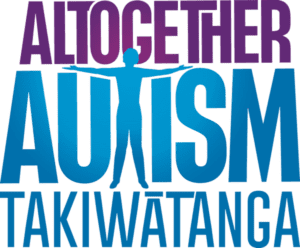
Like any parent or caregiver, you’ll want to make sure the person you care for gets the things they need. That means, from time to time, you’ll need to be their advocate. If you feel you need some extra support when dealing with organisations, healthcare providers or government departments like Work and Income, here are some places you can get advice:
Citizens Advice Bureau (CAB)
Citizens Advice Bureau can give you general information and advice about your rights and obligations. They can also connect you with advocates who can help.
Health and disability advocacy
Health and Disability Advocacy is available if you want to know more about your rights when using health and disability services. They can help you find an independent advocate if you need one, and they can give you tips on self-advocacy.
Community Law Centre
Community Law specialise in helping people who can’t afford legal advice, and who are vulnerable in some way. They run workshops, provide easy-read information and offer free, individual legal advice. They can help with things like tenancy disputes, employment disputes, human rights issues and health-related issues.
Auckland Disability Law
Auckland Disability Law provides free legal services to disabled people for legal issues associated with their disability and is the only specialist disability law community law centre in Aotearoa New Zealand.
Work and Income advocacy
There are a number of Work and Income advocates around the country. You can ask your local Citizens Advice Bureau or Work and Income office about advocates in your region. Some of the larger advocacy groups are Beneficiary Advisory Service (BAS) in Christchurch and Beneficiaries Advocacy and Information Service (BAIS) on the North Shore.
Budget advocacy
FinCap can connect you with a free and confidential budget advisor. They can help you put together a plan to manage your bills, get out of debt, and move forward with your finances.
IHC
IHC provides advocacy support to anyone who wishes to advocate on behalf of a person with an intellectual disability, and they can also support people with intellectual disabilities to be self-advocates.
Support organisations
Contact a disability support organisation for advice. In many cases they will have specialised knowledge about your disability and have experience helping people like you get the things you need.
Enduring power of attorney – Ministry of Justice
If you are the parent of a disabled child, you will need to apply to the court if you believe you should continue to make decisions for your child after they turn 18. The court will need to be satisfied that your child is totally unable to make or communicate decisions about how they should be looked after.
Personal Advocate Trust
The Personal Advocacy Trust (PAT) can appoint a personal advocate to ensure the welfare and rights of people with intellectual disabilities are respected after their parents die.
Read our article Using self-advocacy to get what you need, written by Life Unlimited (now known as Your Way | Kia Roha) community liaison John McIntosh.



 Read our article
Read our article 

